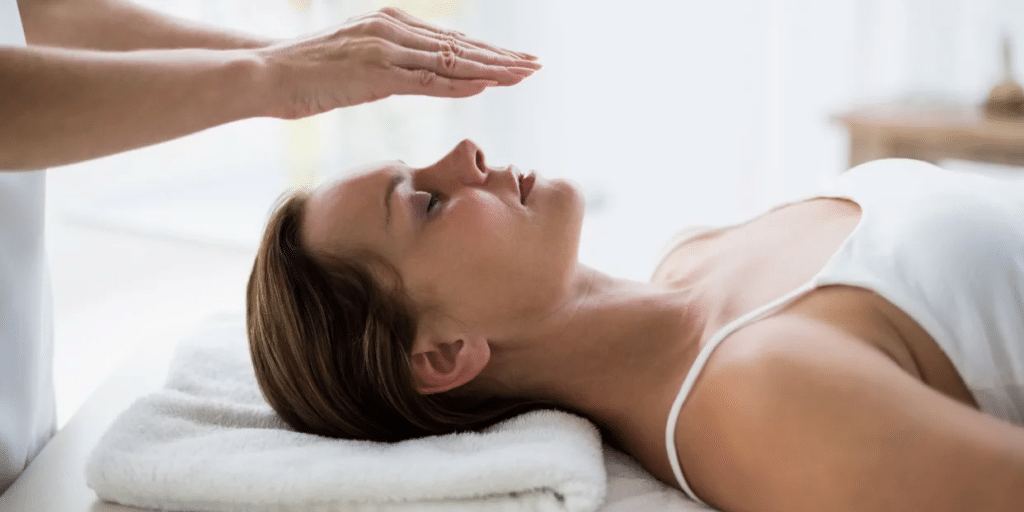Reiki is a form of alternative therapy commonly referred to as energy healing. It emerged in Japan in the late 1800’s and is said to involve the transfer of universal energy from the practitioner’s palms to their patient.
Reiki is best held in a peaceful setting, but it can be carried out anywhere. The patient will sit in a comfortable chair or lie on a table, fully clothed. There may or may not be music, depending on the patient’s preference.
The practitioner places their hands lightly on or over specific areas of the head, limbs, and torso using different hand shapes, for between 2 and 5 minutes. The hands can be placed over 20 different areas of the body.
If there is a particular injury, such as a burn, the hands may be held just above the wound.
While the practitioner holds their hands lightly on or over the body, the transfer of energy takes place. During this time, the practitioner’s hands may be warm and tingling. Each hand position is held until the practitioner senses that the energy has stopped flowing.
When the practitioner feels that the heat, or energy, in their hands has abated, they will remove their hands and may place them over a different area of the body.
Health & Reiki Benefits
According to practitioners, the healing effects are mediated by channeling the universal energy known as qi, pronounced “chi.” In India, this is known as “prana.” This is the same energy involved in tai chi exercise. It is the life force energy that some belief surrounds all of us.
This energy is said to permeate the body. Reiki experts point out that, while this energy is not measurable by modern scientific techniques, it can be felt by many who tune in to it.
Reiki is alleged to aid relaxation, assist in the body’s natural healing processes, and develop emotional, mental, and spiritual well-being.
It is also said to induce deep relaxation, help people cope with difficulties, relieve emotional stress, and improve overall wellbeing are included in reiki benefits.




